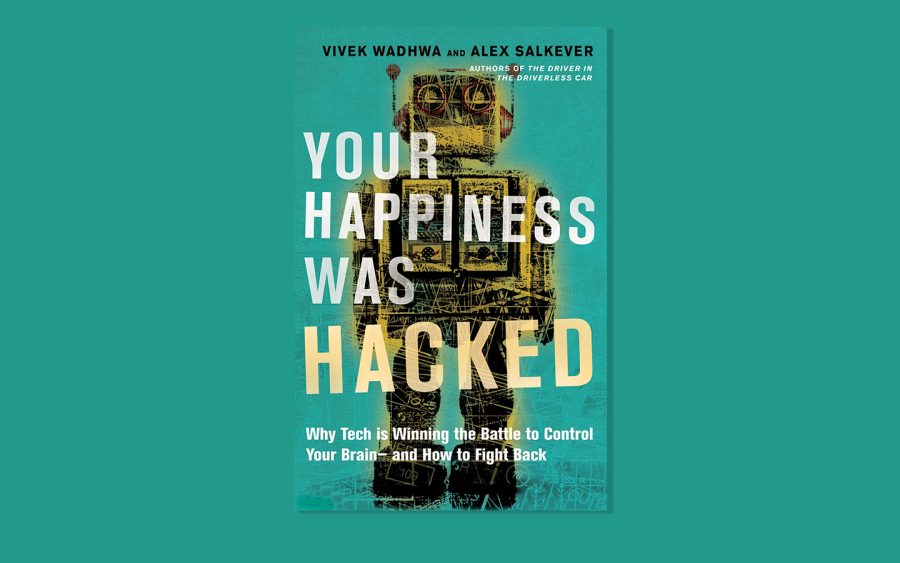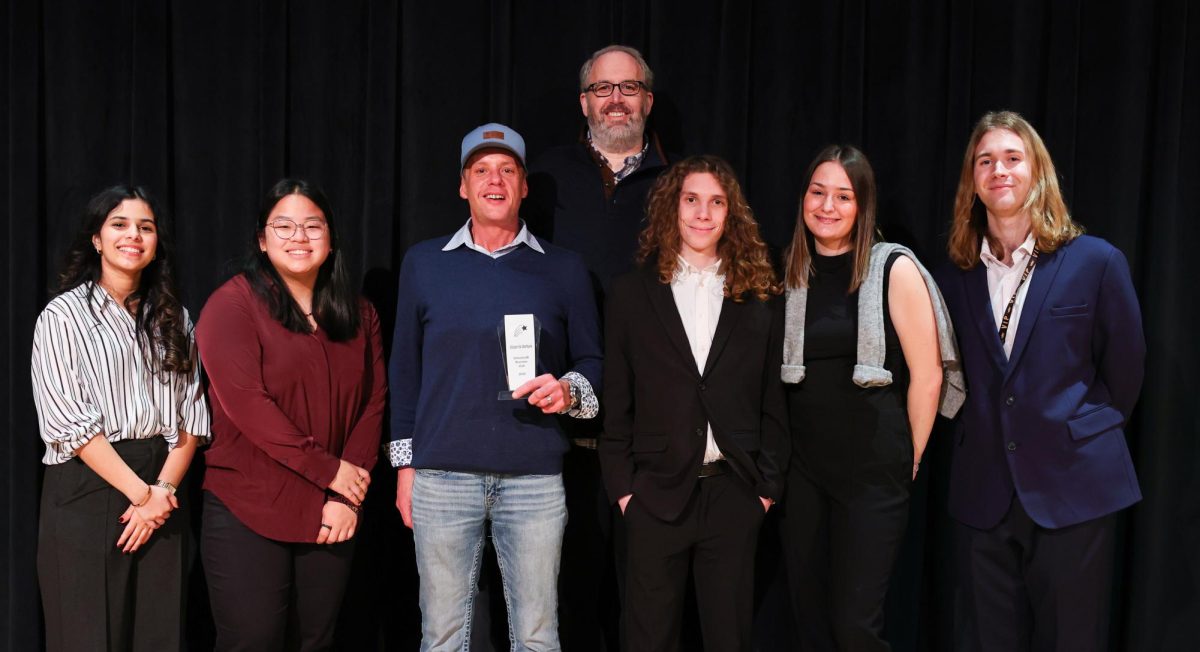Emotionally altered
‘Your Happiness was Hacked’ is as empowering as it is intriguing
March 24, 2022
Rating: 10/10
In a culture of easy access to info, hyper politicization, social media addiction and changing values it’s important to reflect on the ways that humans react to the world around them. Just as many philosophers of the past had scrutinized society’s functionality, the book “Your Happiness Was Hacked: Why Big Tech is Winning The Battle to Control Your Brain – and How To Fight Back,” by Vivek Wadhwa and Alex Salkever, aims to do the same in our modern era by exposing the way big tech controls others’ emotions.
At first glance the writing may seem somewhat dull, as it is filled to the brim with statistics, but those facts are actually interwoven into the personal stories of the authors’ experiences. They make the story feel relevant to today’s technological climate. The authors have a combined work experience of over 40 years within the tech industry, meaning not only do they have a wisdom to the way their own emotions have changed through technology, but also the education to write about why.
Some of the emotional changes they have detailed in the modern world include spikes in depressional issues in youth, leading to lowered mood and increased anxiety, as well as an increase of body dysmorphia in young women, ADHD diagnoses, and loss of grey matter in the brain.
“Your Happiness Was Hacked” often criticizes the designs of many of the applications controlled by Big Tech (Facebook, Apple, Amazon, Google, Microsoft, etc.), as they feed off of social-media addiction. It isn’t all hopeless, however. One positive aspect about this book is that it doesn’t just expose dirty practices on these sites, but rather analyzes the ways in which every user can gain more control of their lives outside of them to lead a happier and healthy life. With this information, it almost feels like a cheat code. These tips are effective.
The book itself is not a tell-all of Big Tech’s underhanded practices, or a self help pamphlet of anecdotes. It serves as a basis to help anyone interested in technology, or oblivious to its power, understand the way that Big Tech affects all of our lives.
For anyone looking to enjoy a solid read, rooted within science, backed by data and centered around the current human experience, this book is a must read.









